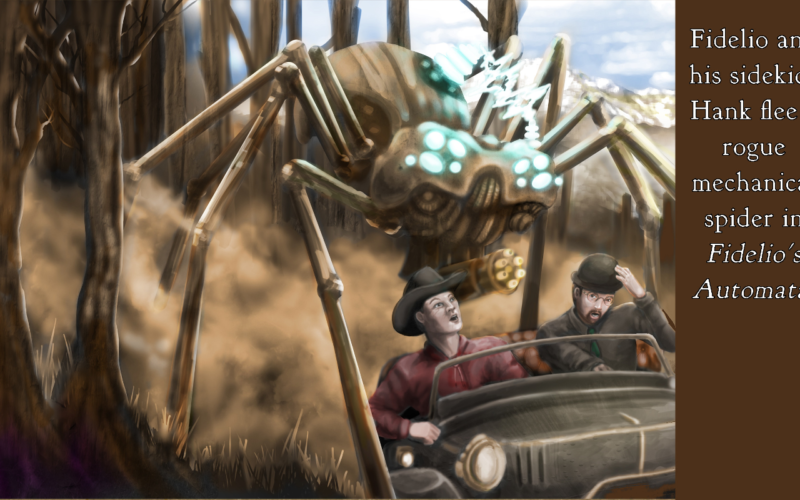
Photo by Vaughn Treude
Like me, most of you probably have childhood memories of sitting in front of a blank page, agonizing over what to write for a school essay. Years ago, in my first serious foray into writing fiction, I’d occasionally have the same problem. Eventually, I stopped writing because I was blocked on a particular novel. That doesn’t happen to me anymore, thanks to a few simple techniques. Hopefully, these will help you as well.
My theory is that writer’s block is caused by confusion about your goals. If you sit in front of your computer, expecting a masterpiece to appear on the page, it won’t happen. Writing a masterpiece is a great goal, just not for the short term. Your immediate goal is to just write because no story ever starts out perfect. It helps to prepare beforehand, but it’s not mandatory. Some writers do detailed story outlines. Others have a vague concept and let the words flow freely. I’ve done both, and both can work, given the right discipline.
Over the years, I’ve attended a few writers’ workshops. The most common advice I’ve heard is, “A writer writes.” To be a writer you must make writing a habit. Science fiction writer Cory Doctorow recommends setting aside a particular time of day to write a specified number of words, for example, 500. While doing this, you mustn’t censor yourself or make anything but the most rudimentary fixes. Editing is an entirely separate task.
Doctorow advocates stopping at exactly the chosen word count, even in the middle of a sentence, so that you’ll have a natural place to continue the next day. I find this rule to be frustrating. If I have enough time and I feel inspired I’ll sometimes write 2000 words or more. Resuming the next day is seldom a problem for me because I try to keep in mind where the story will continue.
Five hundred words may not sound like much but over the course of a year the number it can add up to two or three novels. Keep in mind that writing the first draft is only one of many tasks a successful writer must complete. There are revision and editing, formatting, dealing with agents and publishers (or self-publishing platforms such as Amazon) and promotion.
The skeptic may say, “What if I can’t think of anything?” That’s not a valid excuse. You must have some compelling idea, or the writing bug would never have bit you. When establishing a daily routine, you must write, even if it’s crap. I throw away at least a third of everything I write, but sometimes those wrong turns give me inspiration for new and better plots. Just think, “How can this character get from point A to point B,” and expound upon whatever comes to you. Don’t worry about formatting, spelling, grammar or punctuation. Sometimes I will imagine a conversation and write in script form. You can fill in the descriptions and “said” tags later. Action scenes are more like writing an instruction manual. “X swings his sword at Y. Y raises his shield to parry the blow.” Any trick is fair game if it gets words down on paper.
The more frequently and regularly you write, the more your writing project will stay in the back of your mind. I like to use idle time such as commuting or walking the dog to turn unresolved issues over in my head. How do I get my protagonist(s) out of their problem? What obstacles should I place in their path? If I’m undecided, I use a separate “notes” file to jot down ideas. The act of recording them forces me to clarify your ideas and often one seems best. It also breaks the psychological resistance to “messing up” my nice clean story. If you have a beta reader or a supportive friend or partner, bounce your ideas off of them. Frequently they’ll give you some gems.
Don’t let writer’s block stifle your creativity and destroy your dreams of creating your own work. Writing, like any other craft, requires practice and discipline. Make writing a daily ritual. Getting the words out should be an end in itself. Save the criticism, editing, and self-doubt for later. Employ dead time to work on ideas and issues in your mind. If you keep at it with determination, you’ll have written a novel before you know it.
If you writers out there have any tips or techniques of your own, please feel free to share!
This article was first published on the Phoenix Publishing and Book Promotion Blog.



































